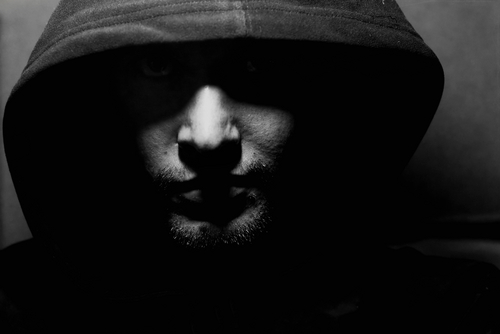 Integrating the shadow is deep work and real shadow work prompts us to delve deeper into ourselves. I often hear the question, “how do I develop my shadow.” You don’t necessarily want to develop your shadow because it’s not a functional complex like the ego, the persona, or the anima and animus.
Integrating the shadow is deep work and real shadow work prompts us to delve deeper into ourselves. I often hear the question, “how do I develop my shadow.” You don’t necessarily want to develop your shadow because it’s not a functional complex like the ego, the persona, or the anima and animus.
The only exception to this would be for someone whose authentic personality has been pushed into the shadow. This happen if a person grew up in a family or a culture where they were not accepted for who they were, and so had to adapt themselves in an artificial way.
The objective of Jungian analysis doesn’t always entail fully integrating shadow traits; rather, it seeks to acquaint us with it as thoroughly as possible. The goal is to incorporate unrecognized psychological values from the shadow into our personality, steering clear of assimilating the disruptive aspects like greed or jealousy, while maintaining an awareness of their existence.
Table of Contents - Jump To Section
Facing the Shadow: Noticing the dark side of our personality

By Zhernosek_FFMstudio.com
When it comes to the darker or inferior aspects of the shadow, you first want to acknowledge those inferior aspects of your personality, both their existence and their deleterious effects on you. You may or may not know what those inferior aspects are, but you can discover them in a few ways with these shadow work prompts:
- Paying attention to how others react to you in an environment where you feel uncomfortable and have impulsive reactions.
- Seeing unsavory characters in your dreams and reflecting on how you are like them.
- Noticing when you have unfavorable, knee-jerk reactions to certain people, but have no real reason for those reactions. I’m not talking about people who irritate not only you but everyone around them. I mean paying attention to a person who irritates you for no good reason. In those cases, we are almost always dealing with shadow.
Integrating the the Shadow
Integrating the shadow does not mean that you give your dark side a free pass to act itself out. The comments we often hear about integrating shadow and hedonism are off-point. The conscious recognition of your shadow and its effects on you integrate it into your personality. Your knowledge of your shadow de-potentiates some of its autonomy over you.
Once you become aware of the shadow, you feel it when it’s constellated and then engage a kind of social filter. For example, you don’t fall into that internal dialogue of “hating on someone’s mere presence,” but instead use your irritation as a point of self-reflection.
Shadow Work and the Moral Problem
People speak rather flippantly about “shadow work,” when in reality it’s a moral problem that challenges the ego-personality at its very core. Anyone who’s descended into the depths of their own darkness understands that the confrontation with the shadow is painful.
For example, an unrecognized, unintegrated shadow can destroy relationships. Looking back on one’s life and accepting that our shadow has interfered in our relationships or burned bridges is quite demoralizing.
The Autonomy of the Shadow
 Until we recognize the shadow for what it is, it has absolute autonomy over the ego. Let’s take unconscious jealousy as an example. A woman unconscious of her own jealous or envious nature is especially dangerous, for her shadow will attempt to destroy anyone she perceives as a threat.
Until we recognize the shadow for what it is, it has absolute autonomy over the ego. Let’s take unconscious jealousy as an example. A woman unconscious of her own jealous or envious nature is especially dangerous, for her shadow will attempt to destroy anyone she perceives as a threat.
Or let’s say a seemingly inferiority-complexed man has an unconscious thirst for power, meaning a power complex in his shadow. Covetousness, jealousy, pride, and envy are symptomatic expressions of that power complex. Jung defines the term power-complex as
a whole complex of ideas and strivings which seek to subordinate all other influences, to the demands of the ego, no matter whether these influences have their source in people and objective conditions or in the subject’s own impulses, thoughts, and feelings.
Jung, Psychological Types, Collected Works Volume 6, ¶782
Should this man with an unconscious thirst for power meet another who appears more powerful than he, that complex will be triggered. The doors are then wide open for the shadow to step in and that seemingly weak man can become quite brutal, at least psychologically speaking. This psychological dynamic sets the stage for the man’s inevitable downfall.
As I have already said, dream analysis stands as the most effective method for shadow recognition since it unfailingly manifests in our dreams. Let’s delve into two illustrative instances:
Discovering the Positive Shadow in a Man
Marie-Louise von Franz, in her essay ‘The Individuation Process,’ recounted the story of an excessively serious man who lost his ability to enjoy life. In his dream, he entered his house only to find countless unexplored rooms and floors. He then encountered an old school friend in his garden.
Upon reflection, the man remembered this friend as someone who reveled in humor and incessantly cracked jokes. As they strolled through the city in the dream, he sensed a light and joyful atmosphere enveloping him.
This dreamer had forgotten a part of himself that could experience joy. The dream reminded him that these neglected facets of his personality resided within him, symbolized by the uncharted rooms and floors in his home.
Unveiling the Positive Shadow in Women
I often work with women who grapple with deep-seated self-loathing, making self-love an unimaginable concept. Their hidden strengths lie dormant within their shadows. These women frequently dream of intimate encounters with female figures, often admired and renowned women. I encourage them to list the qualities of these women’s personalities and tell them, “These are your qualities, your unacknowledged psychological values.”
I advise them to love these women until they can love themselves, recognizing that everything embodied by these figures is also inherent in them. This truth is dictated by the dream, not by me.
In both scenarios, the dreamer needs to assimilate the more positive qualities of their shadow as revealed in the dream.
Shadow Prompts: Acknowledging Less Desirable Traits
As mentioned earlier, it’s not necessary to integrate all shadow traits, such as jealousy or insecurity. However, recognizing them when they affect your life is essential.
Imagine you have a friend who outshines you in success or rapport with the boss. You might have noticed a twinge of insecurity when comparing yourself to them.
This insecurity shouldn’t undermine your self-worth or self-esteem. It’s crucial to acknowledge and honestly work with these emotions. If you fail to recognize or address your jealousy or insecurity, your shadow might seize an opportunity to undermine your friend in your absence—an act that amounts to betrayal. Hopefully, this guilt serves as a moral compass, indicating your misstep.
Experiencing your shadow’s autonomy in such situations will make you more vigilant about its actions. You’ll be more inclined to prevent yourself from saying or doing things that conflict with your true intentions.
The Postive Shadow in Psychopaths and Criminals
 I was once asked the question, “If psychopaths have no guilt or shame, do they have a Jungian shadow?”
I was once asked the question, “If psychopaths have no guilt or shame, do they have a Jungian shadow?”
The question delves into the realm of Jungian psychology. Therefore, it’s imperative to explore Carl Jung’s concept of the shadow. It’s essential to clarify that much of what has been discussed thus far doesn’t align with Jung’s original ideas, but rather represents a misappropriation of the term.
In addressing this question, I’ll approach it from the perspective of the shadow as a facet of personality in the context of Jungian psychology, rather than in the context of individuals who may be genuinely psychopathically deranged. Such individuals, characterized by a loss of ego consumed by archetypal forces, fall into an entirely different category.
The Shadow and Personal Biography
According to Jung, the shadow is intricately linked to one’s ego and biography. In simple terms, if there is no ego, there isn’t a distinct personal shadow either. The shadow, in Jungian terms, encompasses everything within ourselves that lies outside the realm of our conscious awareness. Importantly, it doesn’t solely encompass negative aspects of our personality.
During the early stages of psychological analysis, the anima, animus, Self, and other archetypes can become intertwined within the shadow because the individual has not yet undertaken the necessary work to differentiate how each of these elements might influence their personality.
Crucially, Jung’s concept of the shadow doesn’t equate to immorality, cruelty, or malevolence. When he referred to the “dark side” of the personality, he meant aspects that reside in the unconscious, not necessarily traits that are inherently “bad” or “immoral.”
This common misconception regarding Jung’s perspective on the shadow is evident in the responses provided thus far, which have failed to align with Jungian psychology. It’s important to recognize that your personal shadow can encompass both the hidden, potentially negative facets of your personality, as well as the concealed, positive attributes. The specific qualities that constitute your individual shadow depend on your life experiences and your conscious attitude toward them.
Exploring the Hidden Aspects of a Psychopath’s Personality
 The concept of a person’s “shadow” traits is intrinsically tied to how they navigate their conscious existence. Consider this: if an individual’s life is primarily characterized by hatred, we can anticipate finding traces of love and kindness buried within the recesses of their shadow. In essence, the shadow represents all that has been forsaken, rejected, or disdained, as well as the choices that were either unmade or forcibly withheld.
The concept of a person’s “shadow” traits is intrinsically tied to how they navigate their conscious existence. Consider this: if an individual’s life is primarily characterized by hatred, we can anticipate finding traces of love and kindness buried within the recesses of their shadow. In essence, the shadow represents all that has been forsaken, rejected, or disdained, as well as the choices that were either unmade or forcibly withheld.
In the context of a psychopath, whose behavior is notorious for its anti-social nature, the shadow harbors qualities that stand in stark contrast to their malevolent tendencies. Paradoxically, the psychopath’s shadow may contain elements that society considers “positive.” It is in this intricate interplay of dark and virtuous qualities that we can gain deeper insights into the enigmatic psyche of a psychopath. To clarify, the dark or immoral traits displayed by a psychopath represent their consciously lived characteristics, distinct from the latent attributes residing in their shadow.
By delving into these hidden facets of a psychopath’s personality, we can begin to unravel the complexity of their psychological makeup and perhaps even uncover the unexpected traits lurking beneath their veneer of antisocial behavior.
The Unlived Life: Another Exploration of the Jungian Shadow
A different perspective on integrating the shadow describes it as “the unlived life.” It’s a facet of our psyche that often remains hidden, shaped by our upbringing and life experiences. The nature of this shadow varies significantly based on one’s upbringing, whether in a loving or hostile environment. In a loving family, individuals may suppress traits they perceive as “unloving,” even if those traits are a natural part of them.
Even the most seemingly loving individuals possess a shadow with its share of darkness. If you were to ask them, “What do you hate?” they might respond with, “Nothing!” However, these hidden feelings manifest in their dreams or slip out in unintentional words and actions.
The Shadow and Our Biography
One’s biography closely intertwines with the concept of the shadow. Consider the unsettling case of Beth Thomas, as depicted in the documentary “Child of Rage.” This child endured severe abuse, resulting in the development of a psychopathic personality disorder. A personality disorder signifies a disruption in the typical development of one’s personality due to profound psychological disturbances.
Beth’s traumatic experiences led to the repression of her compassion and empathy as a defense mechanism against unbearable suffering. Fortunately, intervention came in time, deconstructing her psychopathy and reconstructing her innate humanity.
Psychopathic Shadow Revisited
Regarding the question of psychopaths lacking shame, guilt, or remorse, it’s important to note that these emotions do exist within them, only as part of their shadow. Just as in Beth’s case, these emotions can surface during the later stages of treatment when the psychopath begins to integrate their shadow. This process entails confronting and accepting suppressed emotions like guilt, shame, and remorse, ultimately transforming into a more complete and authentic version of themselves.
To aid those with personality disorders, one must deeply grasp their life’s challenges and understand what went wrong at their core. If intervention occurs early enough, there’s hope for pulling them out of the shadows. Often, untapped potential lies dormant within these individuals, waiting for discovery if given the chance. Unfortunately, many assumptions and limited knowledge about the human soul prevent this exploration from happening more frequently.
The Shadow and Personality Types
I once received a question:
Is it safe to say that the Shadow is the opposite of the personality, i.e., an introvert’s shadow would be extrovert?
 It’s not accurate to claim that the shadow is the direct opposite of one’s personality. Instead, the shadow is a complex and dynamic part of the overall personality.
It’s not accurate to claim that the shadow is the direct opposite of one’s personality. Instead, the shadow is a complex and dynamic part of the overall personality.
A more precise way to put it would be that the shadow often opposes one’s conscious attitude. Your shadow often holds contrasting perspectives, especially if you tend to be overly one-sided in your thinking. And this regardless of your worldview or conscious beliefs.
The unconscious facets of your personality encompass the shadow. It’s essential to understand that shadow traits are not inherently “bad.” Instead, they encompass everything you aren’t aware of within yourself. That includes both the positive and negative aspects, the ignored and the potential yet to be discovered.
Think of the shadow as a reservoir of everything you’ve rejected, disdained, suppressed, or never recognized within yourself. This means that these elements can be as valuable as your conscious qualities.
Regarding the second part of the question, it’s partly accurate to say that an introvert’s shadow might contain extraverted elements, particularly those connected to their inferior function—whether that’s intuition, sensation, feeling, or thinking.
For instance, consider an introverted intuitive type whose auxiliary function is feeling. This person might have an extraverted sensing or thinking aspect within their unconscious. It’s crucial for them to access these qualities to achieve a more holistic self.
Often, individuals encounter their shadow in dreams, especially when they confront life obstacles that challenge their typical personality type. If you fail to engage with your inferior attitudes and functions, your shadow could take control of that energy, potentially leading to difficulties in various aspects of your life.
